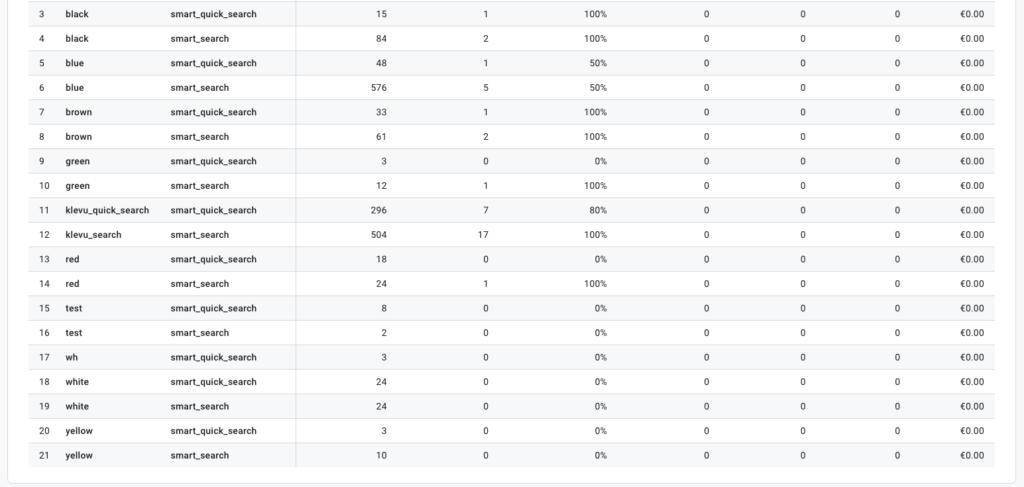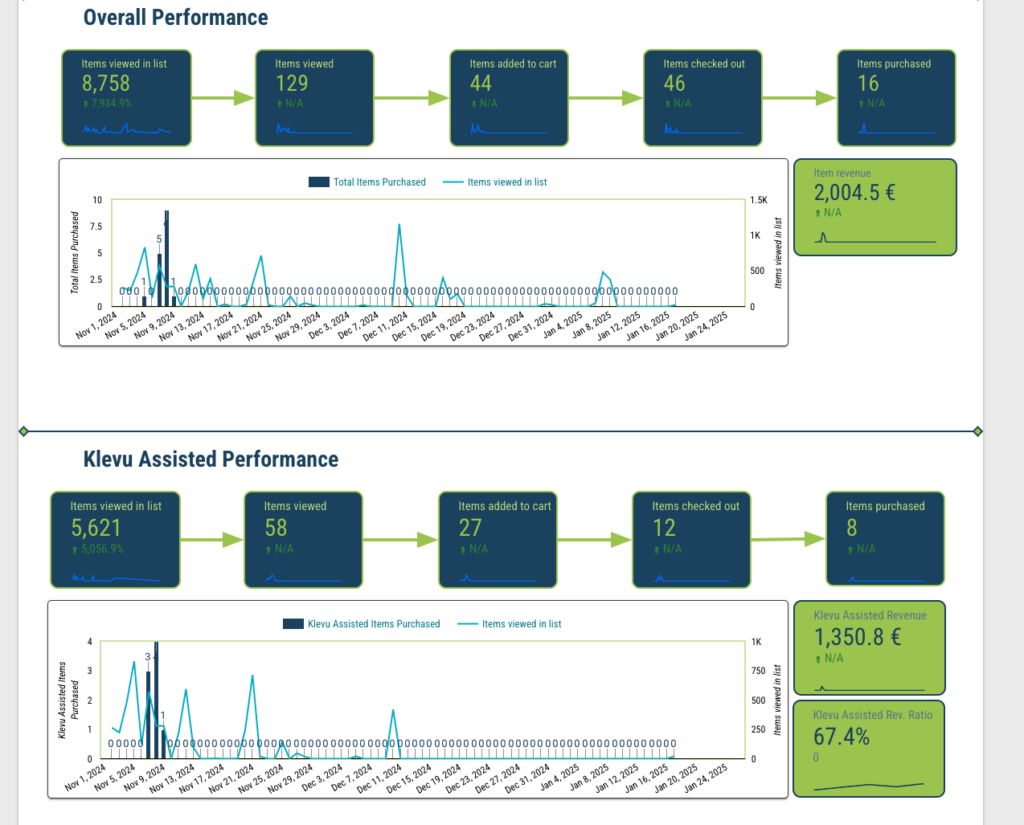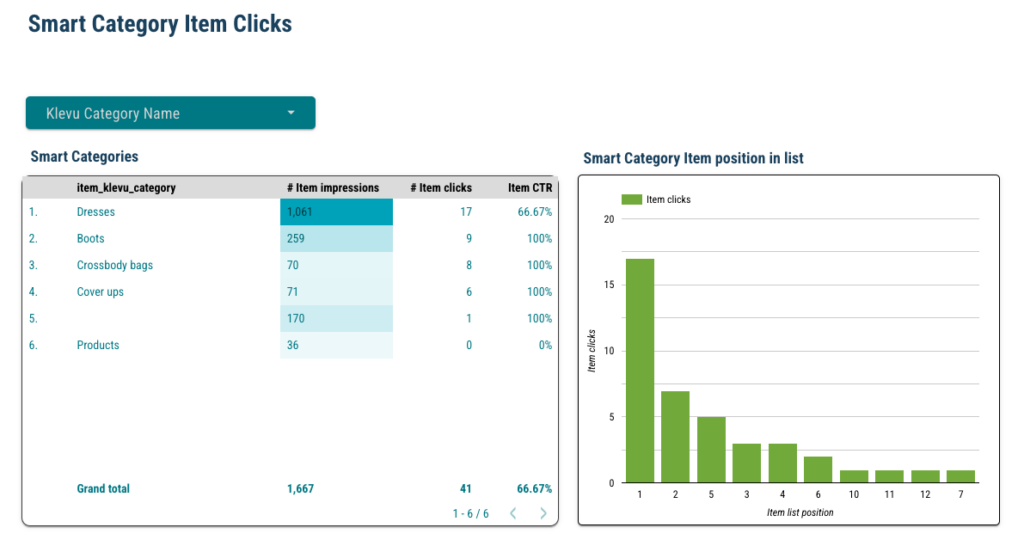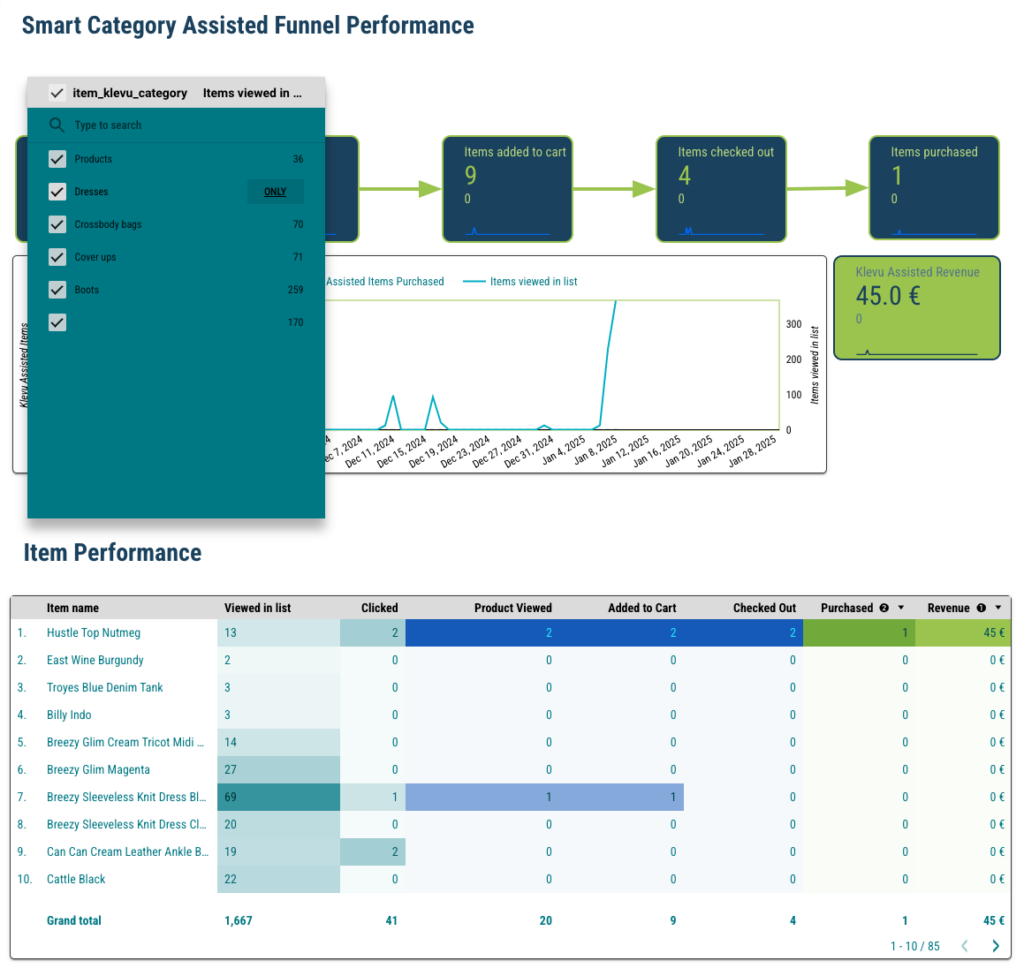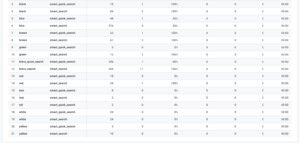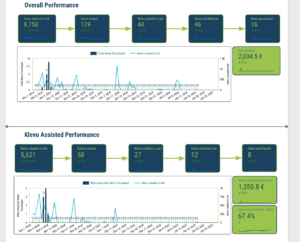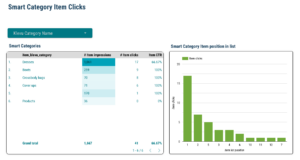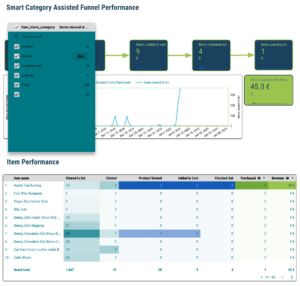Blog
Introducing Klevu GA4 Integration: Unifying Search & Discovery Data in Your GA4
Most ecommerce teams track revenue in GA4, but how much do they really know about why shoppers buy? GA4’s default implementations only show part of the picture. You can’t easily tell which search terms, category merchandising tactics, and product recommendations actually perform.
Klevu’s GA4 integration fixes that by giving you impression and click insights into your product discovery journey – so you can optimize for performance with confidence in your Google Analytics 4.
Your site’s product listings are a gold mine
Despite being used by just 13% of website traffic, site search contributes to 31% of total ecommerce revenue (IMRG Ecommerce Study). Understanding why they convert is crucial, and yet GA4’s Enhanced Ecommerce reports usually give you only a fraction of the full picture. You can’t answer many questions:
- Which products perform best for any given search term – and why they convert,
- How category merchandising impacts add-to-carts and purchases (especially if you’re manually sorting vs. AI-driven),
- Which product recommendations actually lead to revenue, beyond just clicks.
Without the data being tracked, you can’t confidently compare different search solutions, merchandising strategies or recommendation and personalization providers.
Klevu’s GA4 Integration: Unlocking Full Visibility
By enabling Klevu’s integration with GA4, you will be able to:
- See which products spark interest and convert for any given search term,
- Validate category merchandising strategies (AI-driven vs. manual tweaks vs. other solutions),
- Test and prove the ROI of product recommendations (side by side and against any other solution),
- And many more.
This means data-backed decisions in your own analytics—no more guesswork on which approach truly boosts conversions. And because all the data lives in GA4, you can demand the same level of transparency from any other vendor you work with.
How to use GA4 to track search & discovery performance
Step 1. Ensure Enhanced Ecommerce via GTM and dataLayer
Implementing Google Analytics Enhanced Ecommerce (EE) through the dataLayer means using a structured JavaScript object to pass ecommerce-related data (like product details, purchase events, and user interactions) to Google Analytics. This approach provides a clean, efficient, and extensible way to track complex ecommerce behavior. Once implemented, you should see the data in your Monetization reports. This is required because Klevu’s integration builds on top of this existing data.
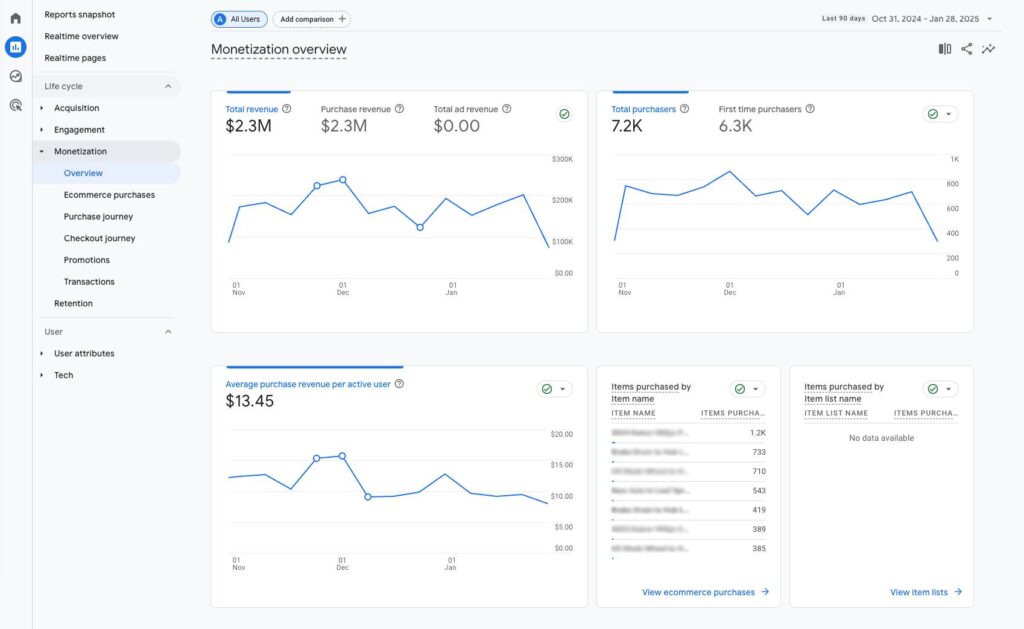
Step 2. Enable Klevu’s GA4 tracking
To enable additional tracking from Klevu, your developer needs to add Klevu’s GA4 tracking snippet and configure GTM for our dataLayer events. Our GA4 integration documentation walks them through the entire setup. Once set up, your GA4 reports will now include data on search, category merchandising, and recommendations—one for each of our frontend components that generate product lists (search, quick_search, category, and recommendations).
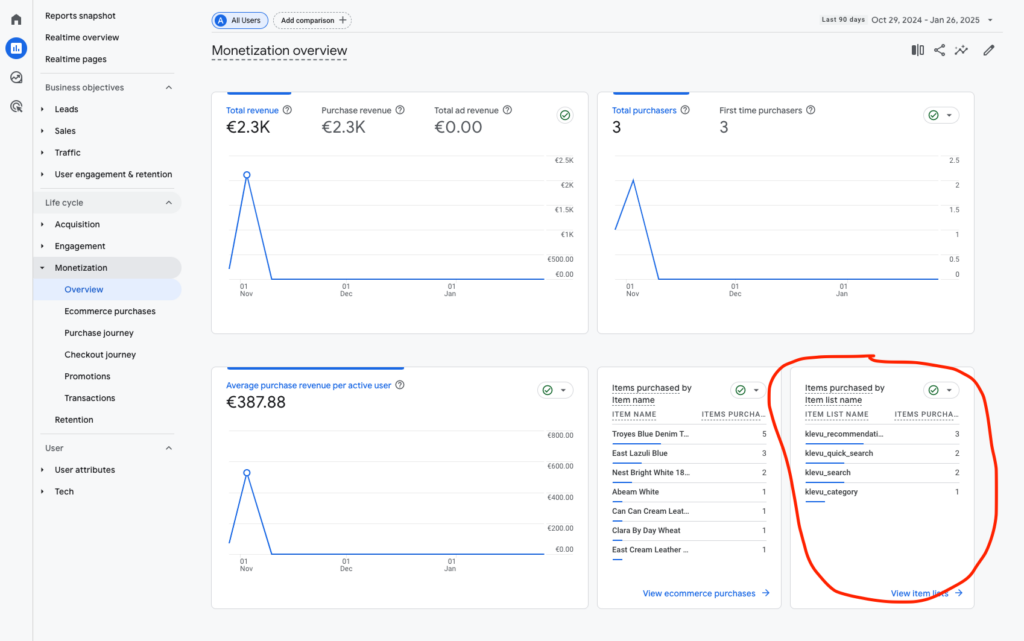
Step 3. Start analyzing your product lists in GA4 and LookerStudio
All search & product discovery data is now in your GA4. This expanded reporting shows how your product lists are performing, including how many times items have been viewed in a list, clicked, and eventually purchased.
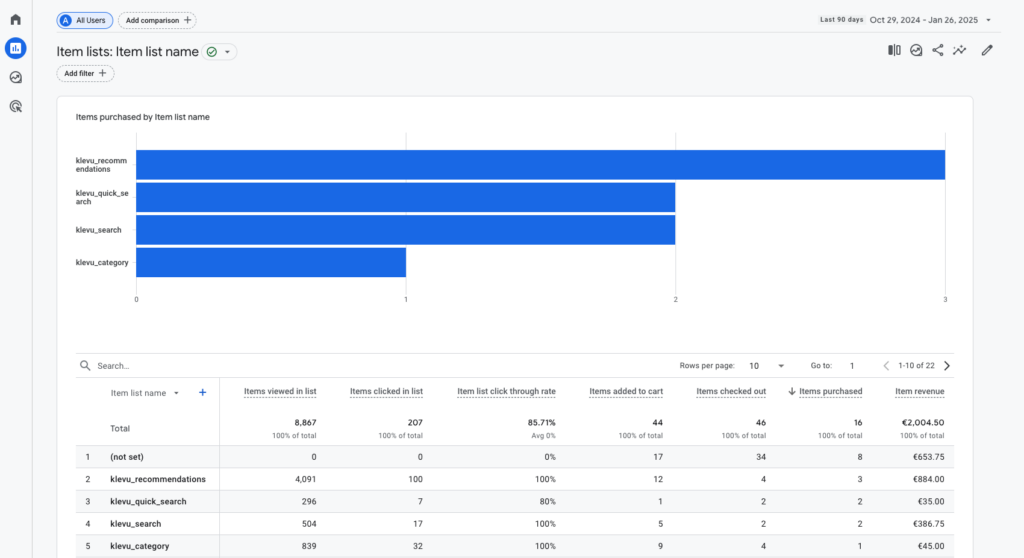
Build and analyze your search & product discovery reports
What you get with our integration is not just one report in your GA4. You get a detailed tracking on product list and item level, answering the big questions about search, category, and recommendation list performance. Additionally, you can integrate the data with LookerStudio to build custom, interactive reports for deeper insights and more robust analytics.
Final Takeaway
By sending impression and click data from search, category merchandising, and product recommendations into GA4, Klevu makes it simple to compare our AI-driven solution to any other approach. Because our engine optimizes in real-time, you’ll see consistent improvements in performance and purchases—backed by hard data in your analytics.
Want to see exactly how it works? Join our technical webinar, where we’ll walk through the GA4 integration, and answer your questions.
